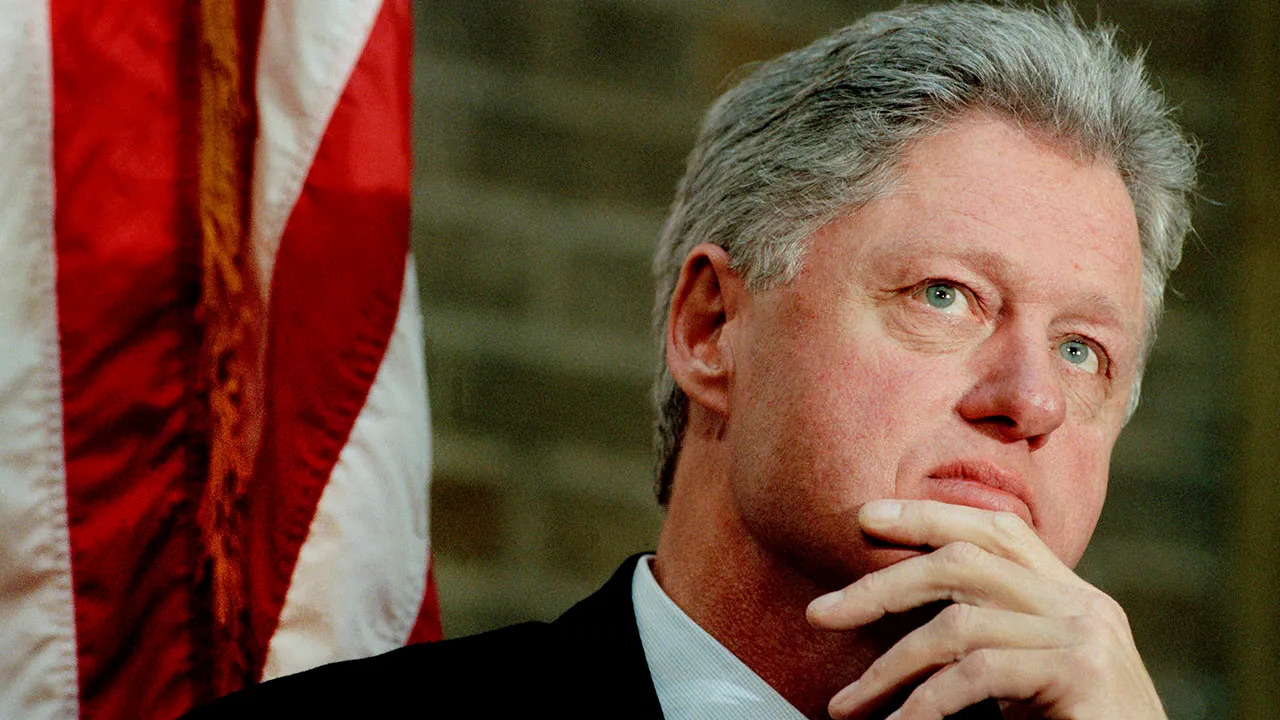
Bill Clinton, the 42nd President of the United States, remains a figure of intrigue and complexity. Born in Hope, Arkansas, Clinton's journey to the White House was marked by charisma, intelligence, and a knack for connecting with people. His presidency, spanning from 1993 to 2001, saw significant economic growth, the signing of the North American Free Trade Agreement (NAFTA), and efforts toward healthcare reform. However, his tenure wasn't without controversy, including the Monica Lewinsky scandal and subsequent impeachment. Bill Clinton's legacy is a blend of political triumphs and personal challenges, making him one of the most studied presidents in modern history. Whether you're a history buff or just curious, these 50 facts will give you a deeper understanding of the man behind the presidency.
Early Life and Education
Bill Clinton's journey to the White House began long before his presidency. His early life and education played a significant role in shaping his future.
- Born William Jefferson Blythe III on August 19, 1946, in Hope, Arkansas.
- His father died in a car accident three months before he was born.
- His mother, Virginia Dell Cassidy, remarried Roger Clinton Sr. when Bill was four.
- He formally adopted the surname Clinton during his teenage years.
- Attended Hot Springs High School, where he was an active student leader.
- Met President John F. Kennedy in 1963, which inspired his political ambitions.
- Graduated from Georgetown University in 1968 with a degree in Foreign Service.
- Won a Rhodes Scholarship to study at Oxford University but did not complete a degree there.
- Earned a Juris Doctor (JD) from Yale Law School in 1973.
- Met his future wife, Hillary Rodham, at Yale Law School.
Political Career Before Presidency
Before becoming the 42nd President of the United States, Clinton had a robust political career in Arkansas.
- Elected Attorney General of Arkansas in 1976.
- Became the youngest governor in the country when elected Governor of Arkansas in 1978 at age 32.
- Lost his re-election bid in 1980 but won back the governorship in 1982.
- Served as Governor of Arkansas for a total of 12 years.
- Focused on educational reform and economic development during his tenure as governor.
- Chaired the National Governors Association from 1986 to 1987.
- Gained national attention for his speech at the 1988 Democratic National Convention, despite its length.
Presidential Campaigns
Clinton's path to the presidency was marked by strategic campaigns and significant political maneuvers.
- Announced his candidacy for the 1992 presidential election on October 3, 1991.
- Faced numerous allegations and scandals during his campaign, including the Gennifer Flowers affair.
- Emphasized a "New Democrat" approach, focusing on centrist policies.
- Chose Senator Al Gore as his running mate.
- Won the 1992 election with 43% of the popular vote, defeating incumbent President George H.W. Bush and independent Ross Perot.
- Re-elected in 1996, defeating Republican Bob Dole and Ross Perot again.
Major Achievements as President
Clinton's presidency saw numerous significant achievements, both domestically and internationally.
- Signed the North American Free Trade Agreement (NAFTA) in 1993.
- Implemented the Family and Medical Leave Act (FMLA) in 1993.
- Passed the Brady Handgun Violence Prevention Act in 1993.
- Enacted the Violent Crime Control and Law Enforcement Act in 1994.
- Signed the Welfare Reform Act in 1996.
- Balanced the federal budget and achieved a budget surplus by the end of his presidency.
- Played a key role in the Oslo Accords, aimed at resolving the Israeli-Palestinian conflict.
- Oversaw the Dayton Agreement, which ended the Bosnian War in 1995.
- Initiated the Kosovo War intervention in 1999 to stop ethnic cleansing.
Controversies and Impeachment
Clinton's presidency was not without its controversies, the most significant being his impeachment.
- Faced allegations of sexual misconduct throughout his political career.
- The Whitewater scandal involved real estate investments by the Clintons in the 1970s and 1980s.
- The Monica Lewinsky scandal emerged in 1998, involving an affair with a White House intern.
- Denied the affair under oath, leading to charges of perjury and obstruction of justice.
- Impeached by the House of Representatives on December 19, 1998.
- Acquitted by the Senate on February 12, 1999, and remained in office.
Post-Presidency Activities
After leaving the White House, Clinton remained active in public life and philanthropy.
- Established the Clinton Foundation in 2001, focusing on global health, economic development, and climate change.
- Authored several books, including his autobiography "My Life" published in 2004.
- Served as a United Nations Special Envoy to Haiti following the 2010 earthquake.
- Played a significant role in his wife Hillary Clinton's political career, including her 2008 and 2016 presidential campaigns.
- Partnered with former President George H.W. Bush on various humanitarian efforts.
- Received the Presidential Medal of Freedom from President Barack Obama in 2013.
- Continues to be an influential figure in the Democratic Party.
Personal Life and Legacy
Clinton's personal life and legacy continue to be subjects of interest and debate.
- Married Hillary Rodham on October 11, 1975.
- They have one daughter, Chelsea Victoria Clinton, born in 1980.
- Known for his charisma, public speaking skills, and ability to connect with voters.
- His presidency is often remembered for economic prosperity and political scandals.
- Continues to be a polarizing figure, admired by many for his achievements and criticized for his controversies.
Clinton's Legacy in a Nutshell
Bill Clinton's presidency left a lasting mark on American history. From economic growth to political controversies, his time in office was anything but dull. Clinton's policies on welfare reform, healthcare, and crime had significant impacts, both praised and criticized. His ability to connect with people earned him the nickname "The Comeback Kid," reflecting his resilience in the face of adversity.
Despite the scandals, Clinton's administration saw the longest peacetime economic expansion in U.S. history. His efforts in foreign policy, including the Oslo Accords and the Dayton Agreement, showcased his commitment to global peace. Clinton's charisma and political savvy made him a complex yet influential figure.
Understanding these 50 facts about Bill Clinton provides a clearer picture of his multifaceted legacy. Whether admired or critiqued, Clinton's influence on American politics and society remains undeniable.
Was this page helpful?
Our commitment to delivering trustworthy and engaging content is at the heart of what we do. Each fact on our site is contributed by real users like you, bringing a wealth of diverse insights and information. To ensure the highest standards of accuracy and reliability, our dedicated editors meticulously review each submission. This process guarantees that the facts we share are not only fascinating but also credible. Trust in our commitment to quality and authenticity as you explore and learn with us.


